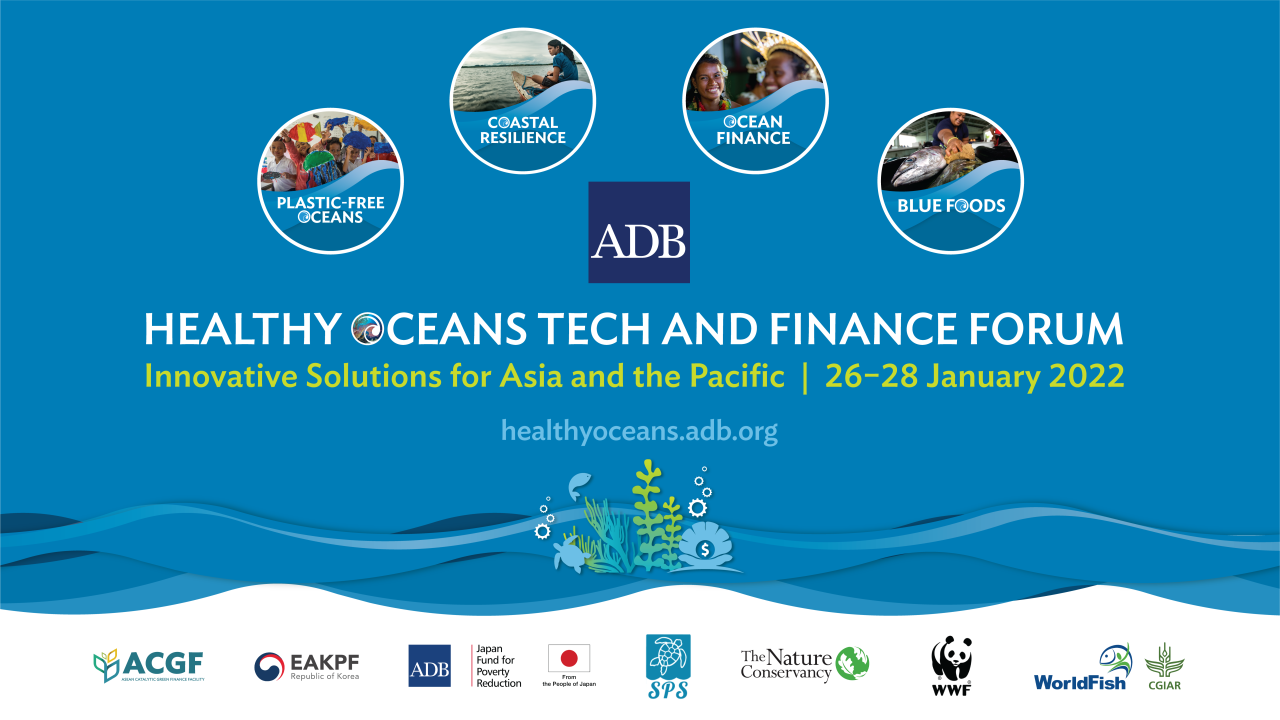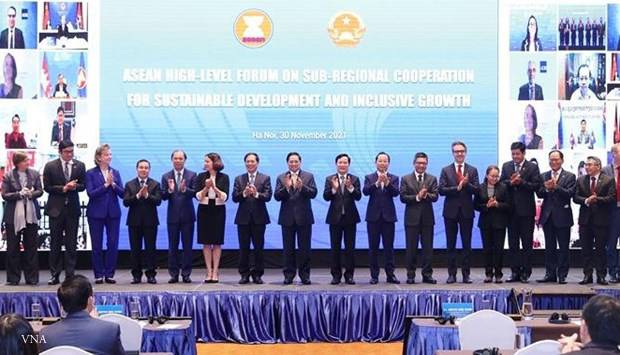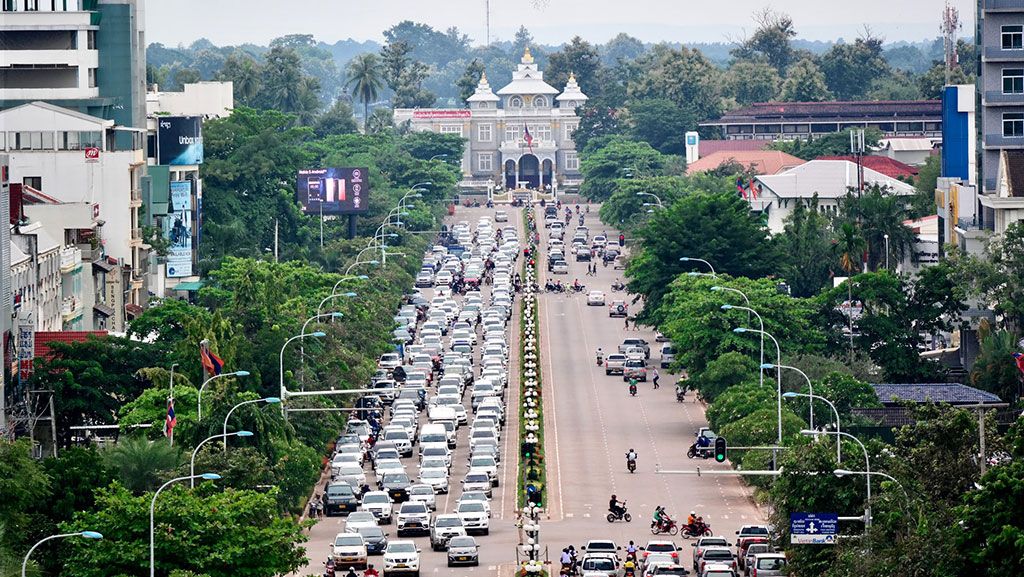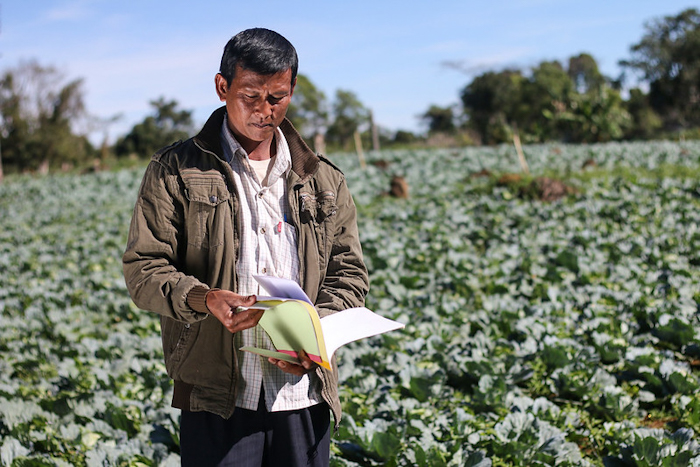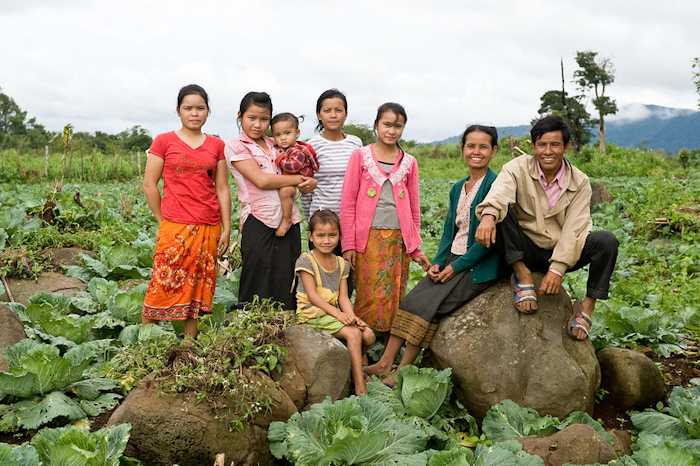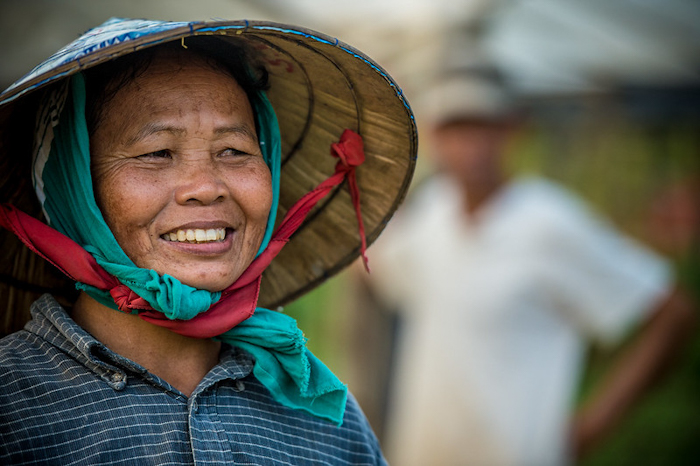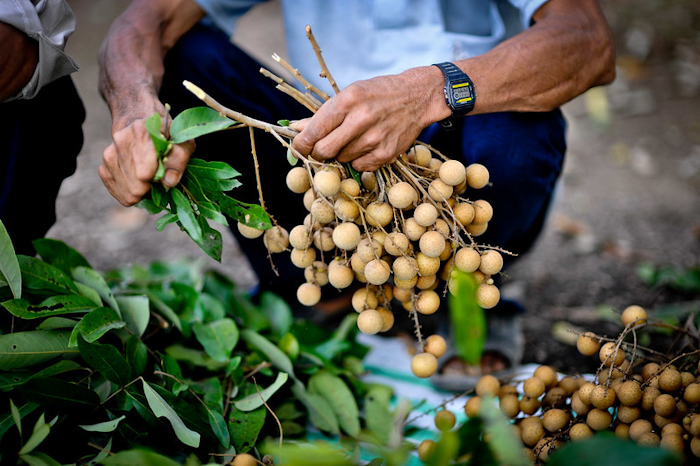Healthy Oceans Tech and Finance Forum: Innovative Solutions for Asia and the Pacific
The Asian Development Bank is convening its first Healthy Oceans Tech and Finance Forum on 26-28 January 2022 that will cover 4 thematic tracks: (1) Plastic-free Oceans, (2) Coastal Resilience, (3) Ocean Finance, and (4) Blue Foods.

